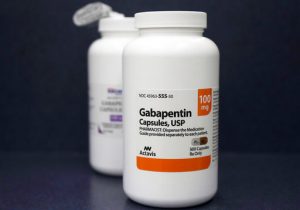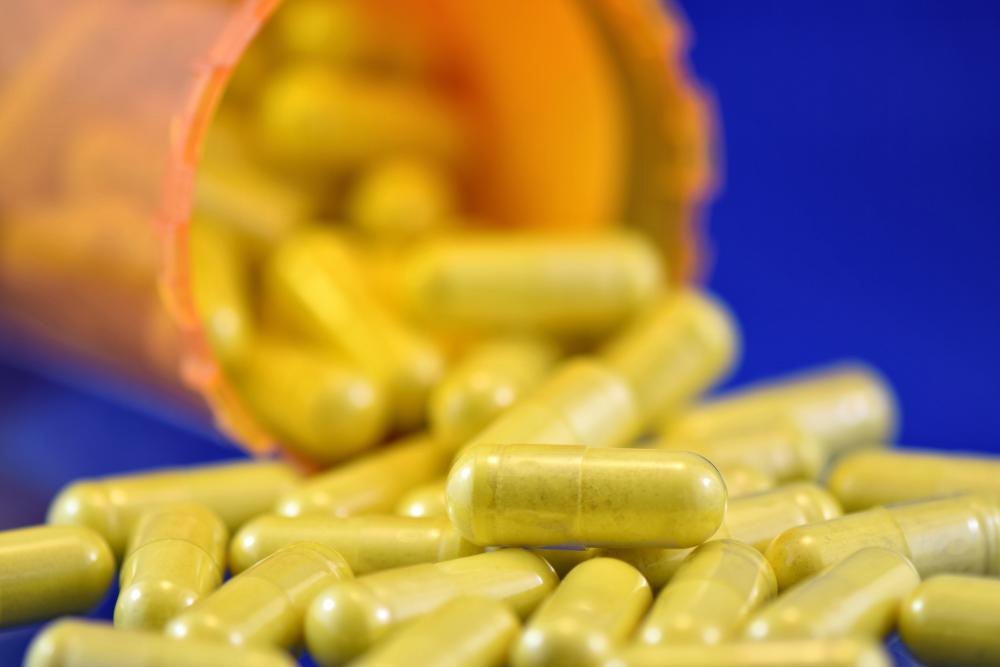If you are doubting about taking this pain killer as part of your medication, it is very important to know the nature of how it works. Your doctor is the best person to consult about the benefits and possible side effects of the product to you. The level of the side effects may vary depending on many factors.
Read further to know more about it so that you can ask your dotor the right questions once you begin your consultation.
Is Gabapentin Safe for Long-Term Use?
Despite being a less addictive alternative to opioids, it still has severe side effects when used for a longer time. If you have a pre-existing kidney problem, then taking this anticonvulsant can worsen that.
Here are other detrimental side effects of this pain reliever when you’ll be taking it for a longer duration:
 Memory loss
Memory loss- Muscle weakening
- Lung diseases
Additionally, it also has rare side effects, which requires medical attention:
- Sore throat
- Chest pain
- Swelling of your arms and legs
- Difficulty urinating
- Ulcer
- Bruising and more
How Long Can You Stay on Gabapentin?
Like any other medication, there are withdrawal symptoms when you abruptly stop taking this pain killer. We recommend that you work with your doctor upon gradually stopping using this substance.
The average time for an individual to take this medicine without suffering serious withdrawal effects is six weeks. If you take longer than that, then you need to abide by your prescription.
Follow the treatment plan of your doctor to avoid addiction and suffering from its health risks.
Is Gabapentin addictive?
 This painkiller and anti-convulsant is a less addictive choice than opioids, yet its nature is the cause why people are abusing it. It’s known to relieve neuropathic pain and discomfort from cocaine and alcohol withdrawal symptoms.
This painkiller and anti-convulsant is a less addictive choice than opioids, yet its nature is the cause why people are abusing it. It’s known to relieve neuropathic pain and discomfort from cocaine and alcohol withdrawal symptoms.
Its main function is to calm your body and senses so that you can feel less pain, yet this property is the main reason why it’s used for recreational purposes.
Even though it’s not posed as a controlled and addictive substance by the CDC and federal authorities, still, many states are monitoring its
distribution in the market.
Here are some evident signs that you’re addicted to this substance:
- You deny your addiction but continues to use the drug even when not necessary
- You no longer hang out with your family and friends since you prioritize using this drug
- You feel uneasy when not using it
- “Doctor shopping”
- Loss of interest with responsibilities and life
Am I addicted to Gabapentin?
If a person is excessively taking this medication without a prescription and combining it with other substances such as opioids and alcohol, that person is most likely to experience Gabapentin addiction.
Why Is Gabapentin Bad For You?
Though it may be less addictive than opioids, still, this prescribed medicine is bad when abused. That’s because this substance has the potential to magnify the effects of other drugs, like alcohol and cocaine.
For instance, if you take alcohol with it, the sedating effects of the former are intensified, which can put a person into a life-threatening situation.
When using cocaine with this medicine, it can enhance the euphoric sensation, which can lead to heart attack or respiratory malfunction.
Besides, the long-term side effects of Gabapentin addiction are dangerous, especially when you have any pre-existing conditions.
Should I worry about Gabapentin withdrawal symptoms?
It is never advisable to suddenly suspend using this prescribed medicine in case when you feel like the side effects are uncomfortable, or even when you forget to take the tablet for reasons like you are traveling and you forgot to bring it.
You may experience withdrawal symptoms about 12 hours after you miss or you stop taking one. The following are the symptoms that will occur upon Gabapentin withdrawal:
 Anxiety
Anxiety- Depression
- Irritability
- Changes in appetite
- Crying spells
- Fatigue
- Headache
- Nausea
- Dizziness
- Insomnia
- Restlessness
- Itching
- Muscle pain or spasms
- Abdominal pain
- Sweating
- Seizures
- Suicidal ideation
These symptoms could be fatal especially when you have pre-existing ailments whether physical or mental. There is a great tendency that seizure activities could be more frequent or severe if you are taking this to treat epilepsy.
You are also at risk of developing suicidal behaviors when suddenly stopping from using this substance since it can alter your brain hormones.
What are the factors that affect the level of Gabapentin withdrawal symptoms?
Besides its serious long-term health consequences, you need to be scared of its withdrawal effects since it’s also life-threatening. Gabapentin addiction is a rising issue in the U.S., so you need to avoid abusing it.
To avoid dependence or substance abuse, follow your prescription. Typically, your doctor will taper you off from the medicine. The following factors are considered in developing your withdrawal treatment:
- How many doses of this drug have you been using?
People who took higher doses are more likely to experience severe symptoms.
- How long have you been using it?
People who have been chronically taking this prescribed medicine are more dependent on the drug and may experience severe symptoms.
- What medical conditions do you have while taking this drug?
Symptoms of pre-existing ailments may recur in the process of withdrawal.
- Are your genes prone to a low tolerance to pain relievers?
If your genes have a low tolerance to withdrawal, then your symptoms could be more severe.
- How did you stop taking it?
If you suddenly stop taking Gabapentin, you may encounter complications that may prolong your treatment.
Can Gabapentin Addiction Be Treated?
The National Institute of Abuse states that a 90-day rehabilitation program is necessary to recover from Gabapentin addiction. Any program less than that will never be enough.
Before undergoing any treatment, you need to ensure you are willing to do it, otherwise, you will never finish your treatment program. You also need to find a reputable addiction specialist and rehab center to enroll in their recovery program.
Additionally, here are some specific activities that must be part of your rehabilitation program:
- Behavioral therapy
- Individual and group counseling
- 12-step work
- Gender-specific program
- Chemical dependency education
- Relapse prevention strategies
- Life skills development
- Other alternative therapies (music therapy, animal-assisted therapy, art therapy, etc.)





